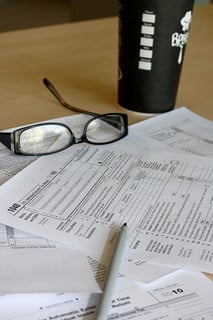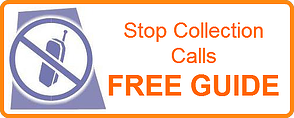Calls from debt collectors can be very annoying. For some, the calls are so bothersome that phone numbers have to be changed or disconnected to stop debt collection calls.
When Can Debt Collectors Call

The Fair Debt Collection Practices Act (FDCPA) is the Federal law that states what debt collectors can and can't do. For starters, they aren't to call you about a debt that you don't owe. When a debt collector first contacts you about a debt, you have the right to request them to verify the debt is yours. If the debt collector can't come back with proof that you owe the debt, they're not allowed to contact you anymore. DEBT VALIDATION
Even without sending a validation request, debt collectors have certain rules they must follow when it comes to contacting you over the phone. For example, they can't call you before 8 a.m. or after 9 p.m. your local time. They can't call you repeatedly, and they can't call you at anytime you've previously stated is inconvenient. For specific situations timing of debt collector calls check out.
Stop Debt Collection Calls
There's no law that says you have to communicate with a debt collector by phone. If you hang up on a debt collector there is nothing they can do about it. But, if the collector continues to call you repeatedly even after you have hung up on them, they are in violation of the FDCPA.
All you have to do to stop debt collectors from calling you is tell them that you prefer to communicate with them in writing. Written communication works in your favor because it gives you a record of everything that is said. If the debt collector violates the FDCPA, you have hard evidence that could lead to a lawsuit in your favor. Keep in mind that, by law, the debt collector does not have to honor this request.
The surest way to stop debt collectors from calling you is by sending what is known as a cease and desist letter. In the letter, state that the collector should cease and desist further communication with you. Note that the cease and desist letter only applies to debt collectors, not the original creditor.
Can Debt Collectors Contacting You About Someone Else's Debt?
People who've recently changed their phone numbers are often plagued with calls from collectors trying to reach that number's previous owner. You might have this problem even if you've had the same number for years. Unfortunately, telling the debt collector that they have the wrong number may not be enough to stop the calls for good. If calls persist after the cease and desist letter, report the collector to your state Attorney General and the Federal Trade Commission.
Debt collectors might also contact you trying to locate another person, like a friend or relative. Somehow in their background check, your contact information has been liked to the debtor. The law does allow debt collectors to contact a third-party to get a phone number, address, and employment information, but the collector can only contact a specific third-party once and they can't reveal any information about the debt. A debt collector is violating the law if they continue to contact you for contact information even after you've told them what you know.
What Happens After the Cease and Desist
Once the collection agency receives your cease and desist letter they can communicate with you once more, via mail, letting you know one of three things:
- that further efforts to collect the debt are terminated,
- that certain actions may be taken by the debt collector, or
- that the debt collector is definitely going to take certain actions.
When you send the cease and desist letter to the debt collector, send it via certified mail with return receipt requested. This will provide proof that the letter was sent and received. If the debt collector communicates with you beyond the single instance allowed by law, this evidence will allow you to seek punitive action against the debt collector.
Summary:
Debt collectors earn their money from getting you to pay...period. If you think they want to play fairly or show sympathy for your situation, well, as the saying goes...WAKE UP AND SMELL THE COFFEE!!!
You do not have to put up with Debt Collector Abuse, so take action.
Finally, get help! You don't have to "go-it-alone"!
Photo credit: www.flickr.com/photos/kitby/4883787012/





 Debt collectors are paid to get you to pay up.
Debt collectors are paid to get you to pay up. Getting several calls from harassing debt collectors?
Getting several calls from harassing debt collectors?
 If you have had a debt "forgiven", and receive a 1099-C, how do you avoid paying taxes?
If you have had a debt "forgiven", and receive a 1099-C, how do you avoid paying taxes?





